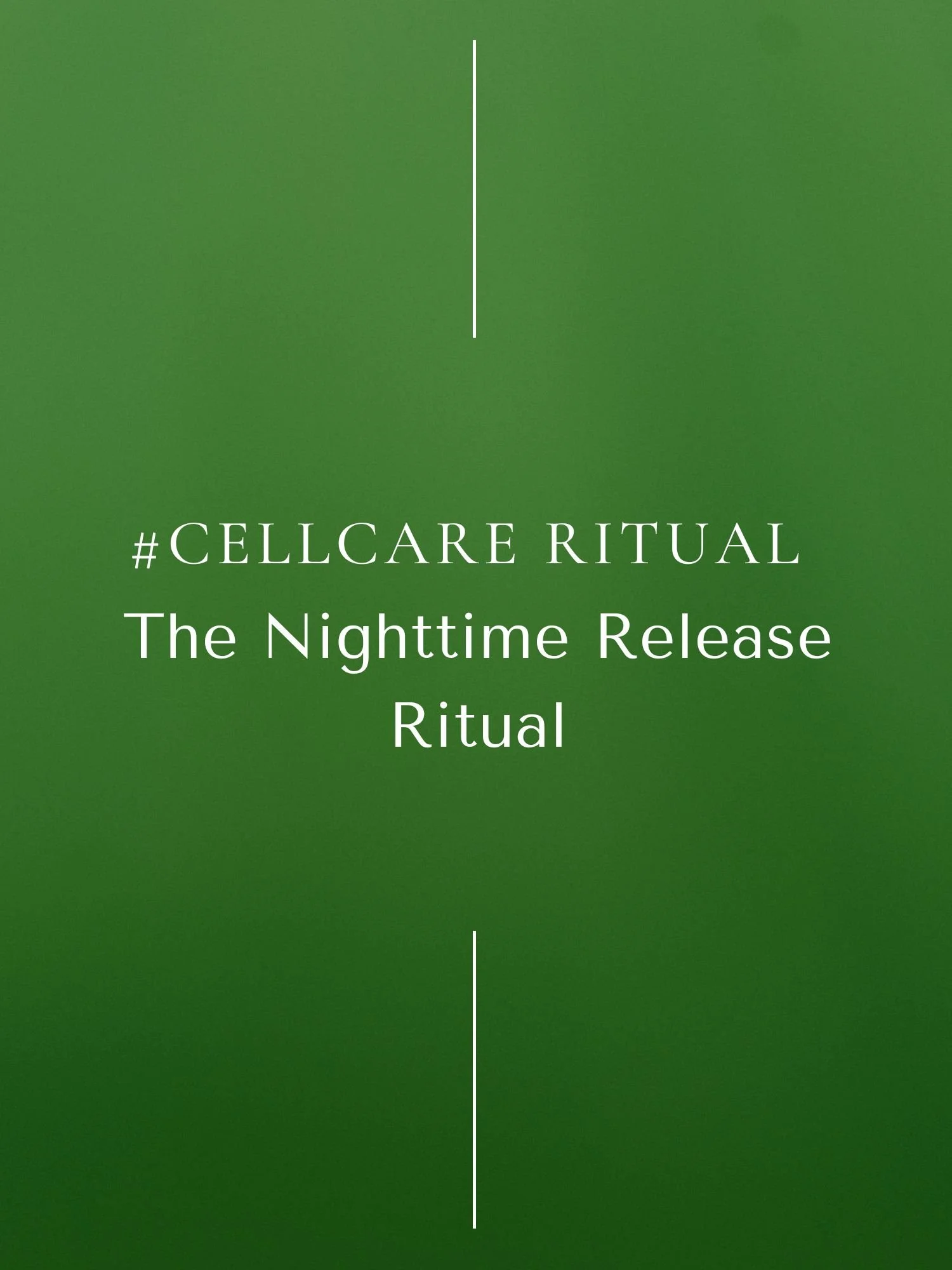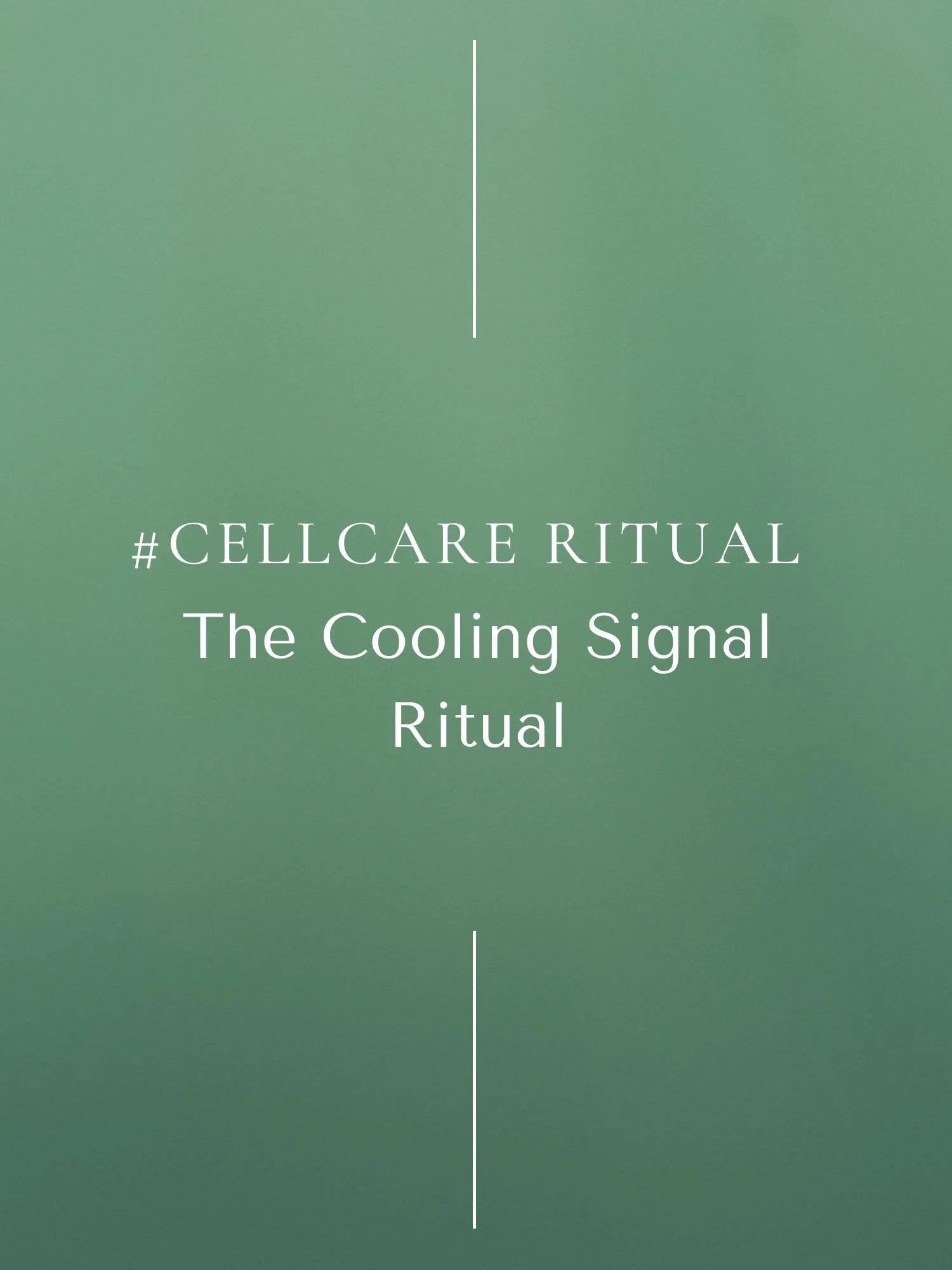Travel Stress Hits Your Nervous System—Here’s How to Reset Fast
It All Started in the Security Line…
Her heart was pounding, even though she wasn’t sprinting. Maria had planned her dream trip for months—but now, juggling a roller bag, fielding a last-minute work text, and scrambling to slip off her shoes while chugging the last of her latte before security, she was anything but relaxed. By the time she found her gate and collapsed into her seat, her jaw was clenched, her breath shallow, and her mind racing.
The irony? This was supposed to be the trip that helped her unwind.
Sound familiar?
Whether it’s the packed itinerary, a red-eye flight, or just trying to stay gluten-free in a foreign airport, travel—while exciting—can trigger your stress response in more ways than one. And if you don’t reset, that stress doesn’t just go away when you land. It lingers in your cells, your sleep, your gut... and your future health.
Let’s break down exactly how travel impacts your nervous system—and what to do about it.
What’s Really Happening to Your Nervous System When You Travel
Maria wasn’t imagining it.
By the time her gate announcement started buzzing, she had already survived multiple micro-stressors: raiding the coffee shop before security, slipping off her shoes for screening, then navigating a sudden terminal shuffle and a food allergy alert at the gate. Outwardly calm—inside, her body was racing.
And she wasn’t alone. According to CivicScience, 71% of U.S. adults say planning and booking travel feels at least somewhat stressful, and that jumps to 78% for parents with kids. Even when your itinerary isn't intense, anxiety around uncertainties—flight delays, immigration lines, missing baggage—activates your HPA axis, releasing cortisol and adrenaline. Layer enough of these over several travel days, and your nervous system stays stuck in a state of high alert.
ARTICLE CONTINUES BELOW
Brain-Body Disconnection | When the Vagus Nerve Goes Offline
By the second leg of her journey, Maria wasn’t thinking clearly. Her layover had been chaotic, she hadn’t eaten a proper meal since breakfast the day before, and her phone battery was almost dead. She found herself snapping at the flight attendant over a missing blanket, then immediately felt guilty.
Why was she reacting like this?
The truth is, Maria’s brain wasn’t malfunctioning—it was adapting to stress. Her amygdala, the brain’s fear and survival center, had been activated since the moment she left home. It scans for danger, and when stress builds, it sounds the alarm—even when the “danger” is just turbulence or a loud gate announcement.
Meanwhile, her prefrontal cortex—the part of the brain that helps you stay calm, problem-solve, and emotionally regulate—had gone quiet. In this state, your logic and patience are compromised, and your reactions become more primal: defensive, irritated, on edge.
But the real culprit keeping Maria stuck in this dysregulated loop?
Her vagus nerve.
This long, wandering nerve connects your brain to your gut, lungs, heart, and more. It’s responsible for the “rest-and-digest” mode that helps your body recover from stress. When it’s working well, you feel centered. Calm. Digestion flows. Sleep comes easily.
But during air travel, especially with jet lag, dehydration, and constant stimulation, vagal tone drops. That means your body can’t easily shift back into relaxation. You’re stuck in sympathetic overdrive—wired, exhausted, and irritable all at once.
This brain-body disconnect is at the root of why travel stress feels so hard to shake… even after the bags are unpacked.
“When your vagus nerve goes offline, your body loses its ‘brakes.’ And without brakes, even minor stress feels like a full-speed crash.” — Dr. B
The Cellular Consequences | Why You Still Feel Off When the Trip is Over
Maria finally arrived.
The ocean breeze was warm, the skies impossibly blue—but something felt... off. She couldn’t sleep. Her digestion was sluggish. Her mind felt foggy. She had arrived in paradise, but her body was still stuck at the airport.
This is the part no one talks about.
When travel stress goes unregulated, it doesn’t just fade into the background. It leaves a cellular imprint.
Inflammation That Lingers
Every spike in cortisol from travel triggers a cascade of immune responses. Over time, this leads to increased levels of pro-inflammatory cytokines, like interleukin-6 (IL-6) and C-reactive protein (CRP)—molecules linked to fatigue, brain fog, and long-term chronic disease.
It’s why many people feel “run down” or even catch a cold after traveling. Your immune system was mobilized during the stress, then left depleted.
Jet Lag and Mitochondrial Disruption
Crossing time zones doesn’t just throw off your sleep—it disrupts circadian gene expression, particularly in your mitochondria, the energy factories of your cells. When this internal clock is off, your metabolism, detox pathways, and hormone rhythms struggle to recalibrate.
Even a 3-hour shift can impair insulin sensitivity, lower energy output, and delay cellular repair.
Oxidative Stress | The Silent Saboteur
Flying at 35,000 feet exposes you to low-dose cosmic radiation, compounded by dehydration and processed food. This increases oxidative stress, which accelerates cellular aging. When oxidative stress outweighs your body’s antioxidant defenses (like glutathione), you start to see signs like:
Puffy face or eyes
Slower wound healing
Skin dullness
Mood swings or brain fog
And if repeated often enough, this imbalance can lead to telomere shortening, a key marker of biological aging.
So when Maria woke up on Day 2 of her trip still feeling puffy, wired, and off-rhythm—it wasn’t just poor sleep or travel fatigue. It was a full-body, cellular signal: her nervous system had not reset, and her cells were trying to keep up.
The Long-Term Impact of Travel Stress
Maria thought a few days of vacation would help her bounce back. But even after she returned home, something was off. Her digestion didn’t feel right. She was craving sugar and caffeine. And her usual morning walk felt harder than it used to.
She chalked it up to “getting back into routine.” But what she didn’t realize was that her nervous system hadn’t yet recalibrated—and her cells were still playing catch-up.
This is the hidden toll of modern travel.
For frequent flyers, digital nomads, busy professionals, or new moms flying home with toddlers—the nervous system is often in a constant state of low-grade stress. Even if you're not consciously anxious, your body remembers the cumulative effects.
What Chronic Travel Dysregulation Can Lead To:
Adrenal fatigue and burnout: Chronic sympathetic activation blunts your HPA axis response, making it harder to manage future stress.
Digestive dysfunction and food sensitivities: With vagus nerve suppression, stomach acid production and peristalsis decline, leading to bloating, malabsorption, and discomfort.
Immune weakening: Your first line of defense—natural killer cells and gut immunity—becomes impaired, leaving you vulnerable to illness.
Mood swings and cognitive fog: A stressed nervous system affects serotonin production and brain clarity, often showing up as irritability, low motivation, or forgetfulness.
Cellular aging: Repeated surges of cortisol and oxidative stress chip away at telomeres—the protective ends of your DNA—accelerating biological aging.
In other words, every trip you take without a reset ritual could be silently speeding up your aging process.
But here’s the good news:
You’re not at the mercy of the airport, the time zone, or the turbulence.
Your nervous system is resilient. It’s built to recover, to regulate, and to return to balance—when you give it the right signals. Even mid-flight. Even during a layover. Even after a sleepless red-eye.
You don’t need more willpower.
You need rituals—intentional practices that whisper to your body:
“You’re safe. You can slow down. You’re allowed to heal.”
Whether you’re soaking in a sunrise or waiting in a security line, your nervous system responds to rhythm, rest, and the smallest moments of care.
The Nervous System Reset Toolkit
Maria didn’t need another vacation.
She needed restoration—something deeper than sightseeing or sleeping in.
What her body was really asking for was rituals that regulate, practices that gently remind the nervous system:
“You’re safe now. You can stop running.”
These aren’t trendy hacks. They’re portable, proven tools that support your nervous system by activating the body’s natural rest-and-repair pathways.
They work on the plane, in your hotel room, or right now at home before your next trip.
Let’s start with the five essentials you’ll want to pack every time you travel:
Top 5 Nervous System Reset Tools to Pack
1. Magnesium Glycinate
Supports muscle relaxation, calms the mind, and improves sleep.
Take 200–400 mg before bed, especially in new time zones or after long travel days.
2. Travel Essential Oil Roller (Lavender + Frankincense)
Helps stimulate the vagus nerve and lower stress hormones.
Roll onto wrists, behind ears, or over your heart before boarding or when overstimulated.
3. Adaptogenic Herbal Tea (Tulsi, Ashwagandha, or Holy Basil)
Calms cortisol, reduces inflammation, and supports digestion.
Sip in-flight or before bed at your destination to help reset rhythm.
4. Noise-Canceling Headphones or Binaural Beats App
Lowers sensory overload and promotes parasympathetic tone.
Listen to 432 Hz, 528 Hz, or guided meditations during flights or layovers.
5. Breathwork Cue Card or App
Techniques like Box Breathing (4-4-4-4) or 4-7-8 slow the heart rate and signal safety.
Just 3 minutes a day can improve vagal tone and regulate your mood and digestion.
Dr. B’s Tip: “These are more than tools—they’re nervous system rituals that travel with you.”
Travel Well, Land Regulated
Whether you’re flying for work, reuniting with loved ones, or finally taking that dream vacation—how you feel when you land begins long before takeoff.
Travel stress doesn’t just disappear when you reach your destination. It lingers in your cells, your breath, your digestion, and your sleep. But the nervous system is always listening—and it’s waiting for a signal that it’s safe to reset.
These five tools are that signal.
They remind your body:
“You’re supported. You’re grounded. You’re safe now.”
And when you make them part of your routine, you’re not just recovering from travel—you’re building long-term resilience, clarity, and calm.
Your Next Step
Save this toolkit. Use it often.
The more consistently you support your nervous system, the better your energy, focus, and digestion will travel with you.
Bookmark this blog for your next trip
Screenshot the 5 tools and pack them before you go
Share this with a fellow traveler who needs a reset
You don’t need a perfect routine—just small rituals that meet your biology where it is.
Until next time,
~ Dr. Bhanote
MAKE A DIFFERENCE BY SHARING THIS ARTICLE WITH OTHERS TO ENCOURAGE WELLBEING ⤵
References:
Barnes RP, Fouquerel E, Opresko PL. The impact of oxidative DNA damage and stress on telomere homeostasis. Mech Ageing Dev. 2019 Jan;177:37-45.
Limón-Pacheco J, Gonsebatt ME. The role of antioxidants and antioxidant-related enzymes in protective responses to environmentally induced oxidative stress. Mutat Res. 2009 Mar 31;674(1-2):137-47.
CivicScience. 2023. As Vacation Season Heats Up, Many Americans Are Feeling Stressed Over Travel Planning. Accessed July 28, 2025.
Talker Research. 2024. Why Are Americans So Anxious About Traveling Internationally? Accessed July 28, 2025.
The information on this website has not been evaluated by the Food & Drug Administration or any other medical body. We do not aim to diagnose, treat, cure or prevent any illness or disease. Information is shared for educational purposes only. You must consult your doctor before acting on any content on this website, especially if you are pregnant, nursing, taking medication, or have a medical condition. Our content may include products that have been independently chosen and recommended by Dr. Monisha Bhanote and our editors. We may earn a small commission if you purchase something mentioned in this article.
YOU MAY ALSO LIKE:
by Dr. Monisha Bhanote
✅ EVIDENCE-INFORMED REVIEWED ARTICLE



















